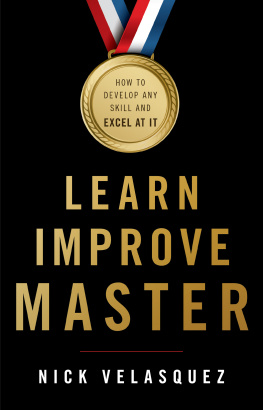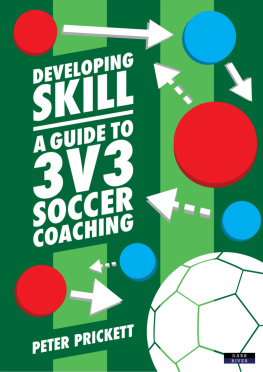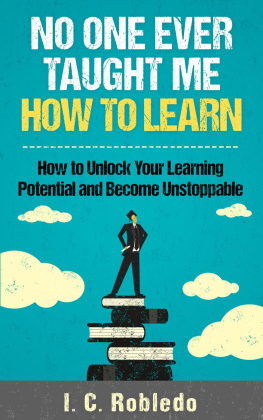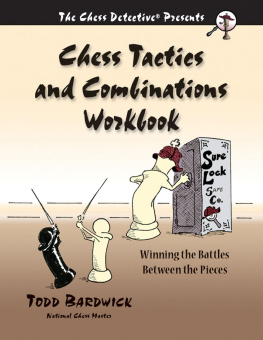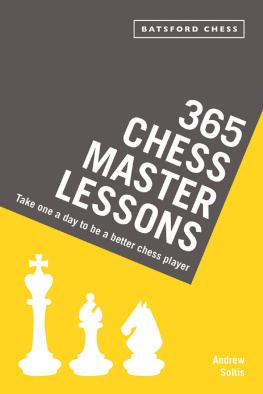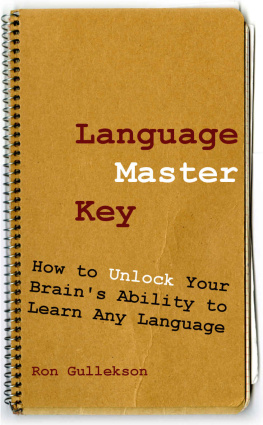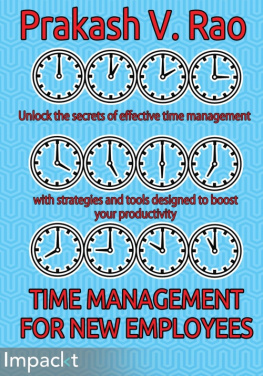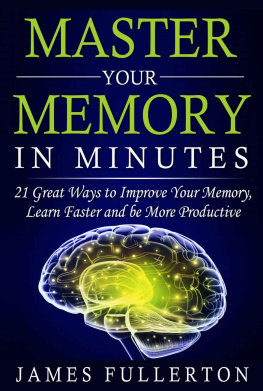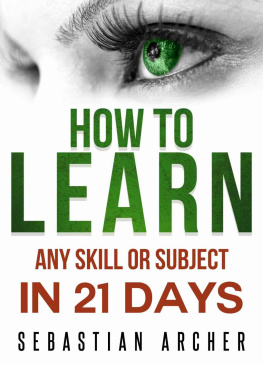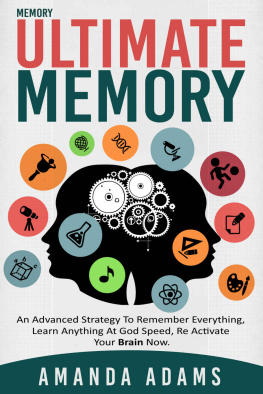The War Of Learn
Unlock Reengineering Learn, Most Effective Tactics To Learn, Improve, Master & Develop Any Skill.
Anna JADE
INDEX
Neuroplasticity and Specialization (5)
Association in Learning (11)
Chunking in Learning (16)
Automatic Processing (26)
Myths & Misconceptions (34)
- Left Brained vs Right Brained Learners (35)
- Learning Styles (41)
- Old Dog Can't Learn New Tricks (46)
- Learning Should Be Fun (48)
- You Either Have It or You Don't (56)
- The 10,000-Hour Rule (58)
Bridge (63)
- Transfer (64)
- Simulation (70)
- Rehearsal in Learning (74)
The Strategies (79)
- Mnemonics (80)
- Paraphrasing (88)
- Summarizing (92)
- Self-Monitoring (97)
- Self-Assessment (105)
- The SQ3R Reading Method (110)
- Note Taking (116)
- Maintaining Interest (122)
- Conversation (128)
- Group Interaction (131)
- Idea Mapping (134)
- Drawing Pictures (139)
- Study Cycles (143)
- Sleep and Rest (146)
- Fluency / Automaticity (149)
- Learning Strategies Checklist (151)
- Asking Questions (154)
- Idea Linking (157)
- How to Use a Book (161)
- Active Listening (165)
- Close Reading (169)
- Planning for Learning (176)
"In the case of everything perfect we are accustomed to abstain from asking how it become: We rejoice in the present fact as though it came out of the ground by magic".
FRIEDRICH NIETZSCHE
Y ears ago, the phenomenon of books with attractive titles such as "How do you learn French in a week?" The phenomenon gradually faded away with the multiple disappointments of all those who spent their money on these books, until these books and those who bought them became a laughing stock for many, including me who fell victim to them one day. It is interesting that I found myself making the same mistake again when a friend advised me to learn programming due to the multiple opportunities it holds in the future and its importance in this advanced technical age. I didn't buy a book like Little Minds this time, but I got lost in YouTube looking for (How do I learn to program Android apps quickly?) Ignoring the long lessons that my programmer friend advised me to follow.
And since you - dear reader - have started reading this book, I have to admit to you that there is no shortcut to learning a skill. But I will offer you the best way and many experiences on how to develop yourself and learn a new skill with high efficiency and less time.
Principles Of Learning:
Neuroplasticity and Specialization
R ecent years have seen significant progress in our understanding of the neural substrates of motor skill learning. Advances in neuroimaging provide new insight into functional reorganization associated with the acquisition, consolidation, and retention of motor skills. Plastic changes involving structural reorganization in gray and white matter architecture that occur over shorter time periods than previously thought have been documented as well. Data from experimental animals provided crucial information on plausible cellular and molecular substrates contributing to brain reorganization underlying skill acquisition in humans. Here, we review findings demonstrating functional and structural plasticity across different spatial and temporal scales that mediate motor skill learning while identifying converging areas of interest and possible avenues for future research.
The acquisition and long-term retention of motor skills play a fundamental role in our daily lives. Skills such as writing, playing golf, or riding a bicycle are all acquired through repetitive practice. Motor skill learning refers to the process by which movements are executed more quickly and accurately with practice. Our understanding of the neural substrates underlying the acquisition and retention of motor skills has been boosted in recent years, owing in a large part to technological and methodological advances in neuroimaging, as well as in noninvasive brain stimulation in humans, coupled with dramatic new insights emerging from animal studies both in vivo and in vitro, providing additional information about the recruitment of specific neuronal circuits during the various stages of motor skill learning. This work has overall demonstrated a strong link between acquisition of motor skills and neuronal plasticity at cortical and subcortical levels in the central nervous system that evolves over time and engages different spatially distributed interconnected brain regions. Here, we review novel findings reflecting functional and structural plasticity associated with the acquisition, consolidation, and long-term retention of motor skills in humans and experimental animals while identifying points of convergence and dispute.
A variety of tasks and experimental paradigms have been used for studying motor skill learning, including juggling, visuomotor tracking, and isometric force-production tasks, to name a few. Of particular relevance to the current review are studies of tasks that require practice of sequential movements: tapping skills like typing or playing various musical instruments. Here, our main focus is on learning sequential motor skills that show lasting improvements beyond baseline performance over lengthy periods of time. Another model for studying motor learning, which does not necessarily involve the acquisition of a new skill, has been adaptation to externally induced perturbations, such as those induced by a force field (dynamic adaptation) or by visuomotor rotations (visuomotor adaptation). These perturbations are more commonly introduced while subjects execute simple motor tasks, for instance, point-to-point ballistic reaching movements. Yet these paradigms characteristically evaluate the return to baseline levels of performance following perturbation over relatively short time periods. However, it should be noted that repetitive practice of adaptation tasks could lead to performance improvements over time in the form of savings, expressed as faster readaptation to external perturbations relative to the initial rate of adaptation. Moreover, skill learning tasks, in which lasting improvements are seen over time, for instance whole-body balancing, may involve an adaptation component.
Motor skills are typically learned slowly over multiple training sessions until performance reaches nearly asymptotic levels. Across different experimental paradigms, skill acquisition develops initially relatively fast (i.e., rapid improvements measured over the course of a single training session) and later more slowly, when further gains develop incrementally over multiple sessions of practice Of note, the relative duration of what can be defined as fast and slow learning is highly task specific. For example, the fast stage of learning a simple four-component key-press sequence could last minutes, whereas the fast stage of learning to play a complex musical piece may last months. Similarly, nearly asymptotic levels in end-point measures of skill can be acquired very rapidly when learning a key-press sequence but much more slowly when learning to play a complex musical piece. Skill changes can occur during training (online) but also after training ended (offline). Offline processes, including skill stabilization and improvement, reflect motor memory consolidation, an intermediate stage between fast and slow learning. Online and offline skill gains can be maintained over time, resulting in long-term retention.
According to neurologist and educator Judy Willis (and suggested by a research-rich chapter in the second edition of Developmental Psychopathology, among many other publications), neuroplasticity is defined as the selective organizing of connections between neurons in our brains.


